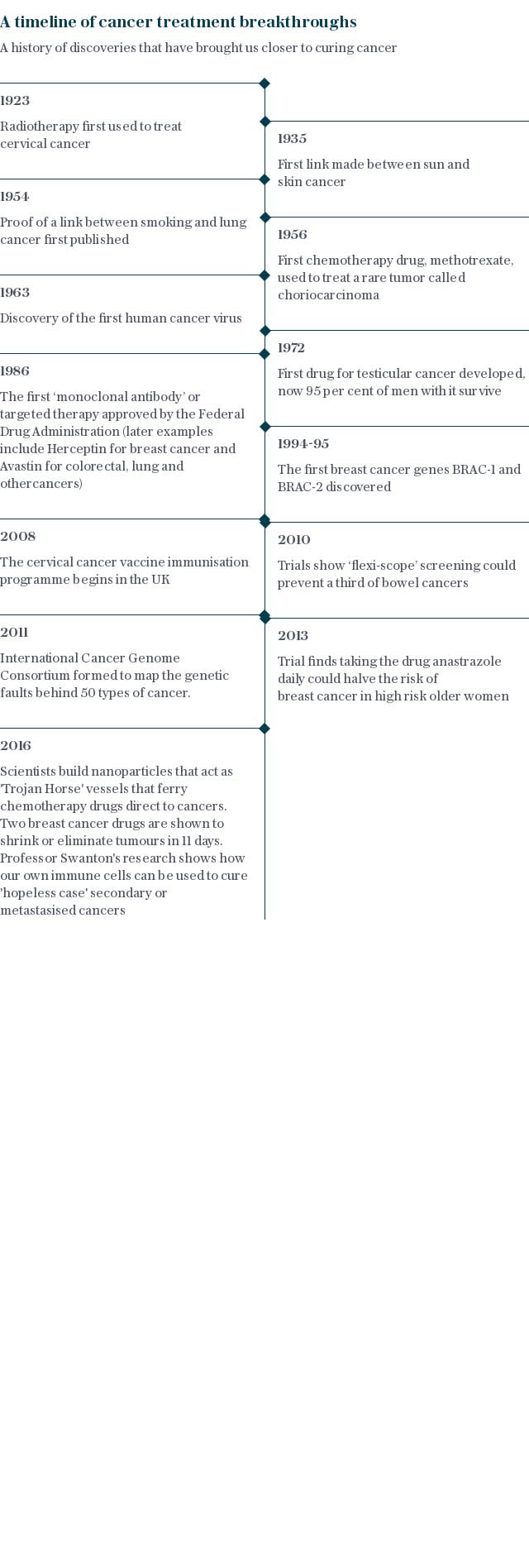Pioneering British firm wins patent for 'cancer vaccines' technology

A pioneering British pharmaceutical company has won a European patent for its ‘cancer vaccines’ technology, which if successful could revolutionise treatment of the disease.
Scancell, which is listed on London’s AIM market, has been awarded the patent for its DNA ImmunoBody scientific platform, which underpins its pipeline of potential cancer vaccines.
The immunotherapy technology enables Scancell scientists to train up cancer-fighting T cells within white blood cells to kill tumours, an approach they believe holds the potential for a permanent cure.
Scancell, which launched in 1997 as a spin-out from the University of Nottingham, is among a host of British firms competing for a chunk of the expected $50bn (£39bn) a year global immuno-oncology (IO) drugs market.

Much larger FTSE 100 rival AstraZeneca is due to publish eagerly-awaited phase three clinical data this summer from a trial called Mystic, testing one of its own promising IO ‘checkpoint’ therapies in lung cancer patients.
However, Scancell says its under-development cancer vaccines differ from the ‘checkpoint’ IO drugs currently coming to market from bigger competitors as they stimulate two different and complementary biological mechanisms and potentially produce more durable results.
Its first potential vaccine, SCIB1, is being developed for the treatment of melanoma and is in early phase one and two human clinical trials, which the firm says have demonstrated a “highly encouraging survival trend without serious side effects”.

In earlier pre-clinical trials on animals, Scancell found that when it re-challenged subjects with tumour cells after SCIB1 treatment this resulted in 100pc survival, indicating a powerful memory response.
Industry insiders believe the fierce global race among pharma conglomerates to become IO market leaders make even small firms with limited clinical data such as Scancell a takeover target.
Scancell’s Immunobody patent lasts for 20 years and guarantees European competitors cannot copy or use the same scientific platform, protecting its future chances of success.
The award follows similar patent protections granted to Scancell in the US, Australia and Japan.
Dr Richard Goodfellow, chief executive of Scancell, said: “The addition of this key European patent for DNA ImmunoBody significantly bolsters our global intellectual property portfolio as we position the company for future growth.”
Scancell’s share price was up more than 1pc in midday training, giving it a market cap just short of £32m.

 Yahoo Finance
Yahoo Finance 